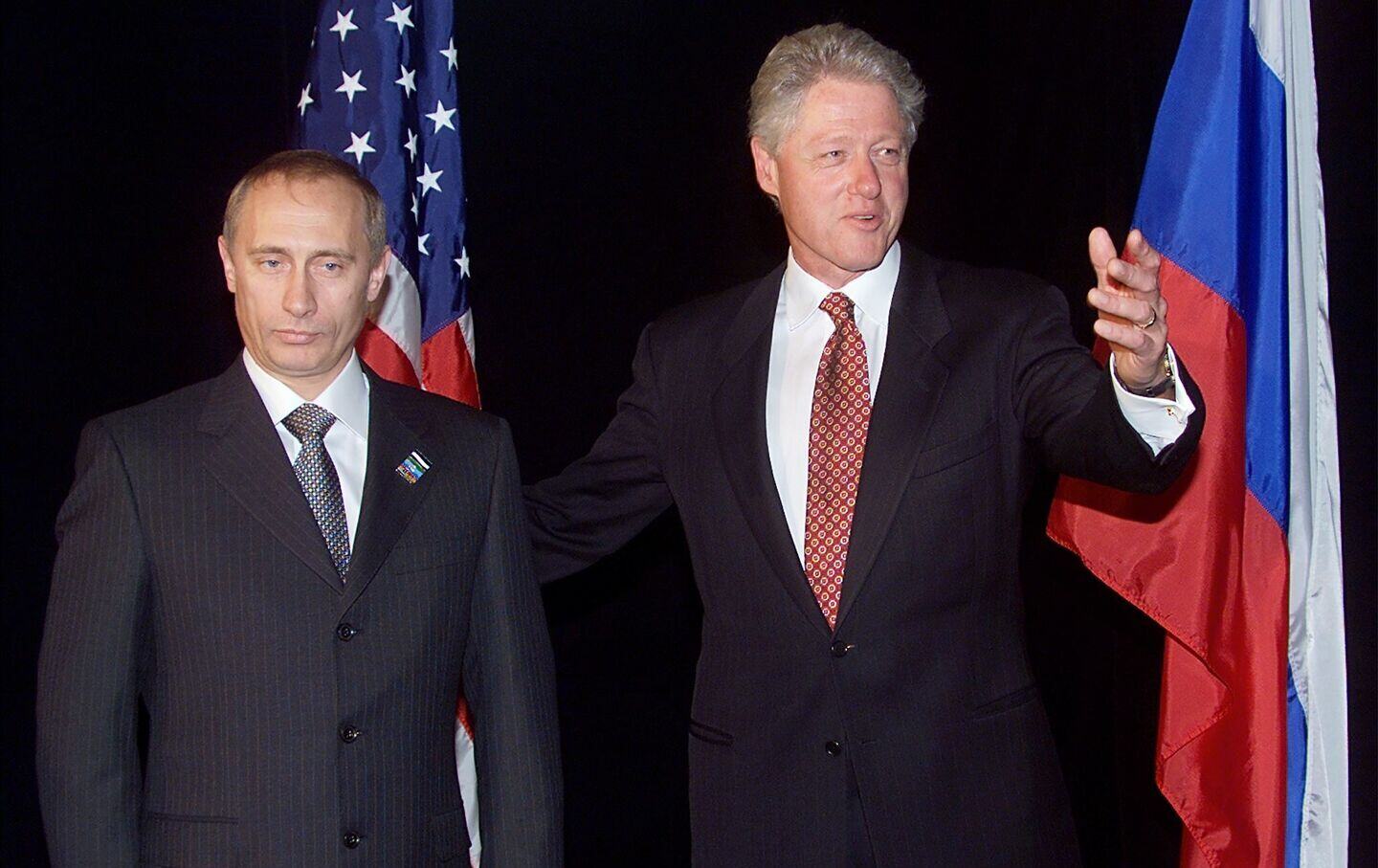The Cold War’s Afterlife
On this episode of American Prestige, part 1 of a discussion on post–Cold War malaise of the 1990s.

Here's where to find podcasts from The Nation. Political talk without the boring parts, featuring the writers, activists and artists who shape the news, from a progressive perspective.
On this episode of American Prestige, we chat with Penny Von Eschen, William R. Kennan Jr. professor of American Studies and professor of history at UVA, about her book Paradoxes of Nostalgia: Cold War Triumphalism and Global Disorder since 1989.
In this first part of the discussion, the group explores the affective dimension of nostalgia, how the “end of history” and “clash of civilizations” narratives influenced U.S. policy starting in the 1990s. We also discuss the post-Cold War malaise that took hold, and the proliferation of anti-government ideologies amidst a massive increase in military spending.
Advertising Inquiries: https://redcircle.com/brands
Privacy & Opt-Out: https://redcircle.com/privacy

US President Bill Clinton and Russian Prime Minister Vladimir Putin at the Stamford Hotel in Auckland, New Zealand, on September 12, 1999, during the first day of the Asia Pacific Economic Cooperation meeting.
(Stephen Jaffe / AFP via Getty Images)On this episode of American Prestige, we chat with Penny Von Eschen, William R. Kennan Jr. Professor of American Studies and professor of history at UVA, about her book Paradoxes of Nostalgia: Cold War Triumphalism and Global Disorder since 1989.
In this first part of the discussion, the group explores the affective dimension of nostalgia, how the “end of history” and “clash of civilizations” narratives influenced US policy starting in the 1990s. We also discuss the post–Cold War malaise that took hold, and the proliferation of anti-government ideologies amidst a massive increase in military spending.

Here's where to find podcasts from The Nation. Political talk without the boring parts, featuring the writers, activists and artists who shape the news, from a progressive perspective.
Please listen to our Sino-Soviet primer episode for some background!
On this episode of American Prestige, Danny and Derek welcome back Jeremy Friedman, assistant professor in the Business, Government, and International Economy at Harvard, to talk about the Sino-Soviet Split. They lay out the state of play in the mid-1950s, the potential for détente, how the two powers are reconciling with their increasingly competing interests, the implications for the Soviet Union’s image among other communists in the wake of Khrushchev’s “secret speech”, theoretical transformations in what communism means during this period, how decolonization plays into the split, why Khrushchev pulled Soviet aid when China needed it most, and more through the mid-1960s.
Grab a copy of Jeremy’s bookShadow Cold War: The Sino-Soviet Competition for the Third World!
Advertising Inquiries: https://redcircle.com/brands
Privacy & Opt-Out: https://redcircle.com/privacy
Subscribe to The Nation to Support all of our podcasts
Hold the powerful to account by supporting The Nation
The chaos and cruelty of the Trump administration reaches new lows each week.
Trump’s catastrophic “Liberation Day” has wreaked havoc on the world economy and set up yet another constitutional crisis at home. Plainclothes officers continue to abduct university students off the streets. So-called “enemy aliens” are flown abroad to a mega prison against the orders of the courts. And Signalgate promises to be the first of many incompetence scandals that expose the brutal violence at the core of the American empire.
At a time when elite universities, powerful law firms, and influential media outlets are capitulating to Trump’s intimidation, The Nation is more determined than ever before to hold the powerful to account.
In just the last month, we’ve published reporting on how Trump outsources his mass deportation agenda to other countries, exposed the administration’s appeal to obscure laws to carry out its repressive agenda, and amplified the voices of brave student activists targeted by universities.
We also continue to tell the stories of those who fight back against Trump and Musk, whether on the streets in growing protest movements, in town halls across the country, or in critical state elections—like Wisconsin’s recent state Supreme Court race—that provide a model for resisting Trumpism and prove that Musk can’t buy our democracy.
This is the journalism that matters in 2025. But we can’t do this without you. As a reader-supported publication, we rely on the support of generous donors. Please, help make our essential independent journalism possible with a donation today.
In solidarity,
The Editors
The Nation
